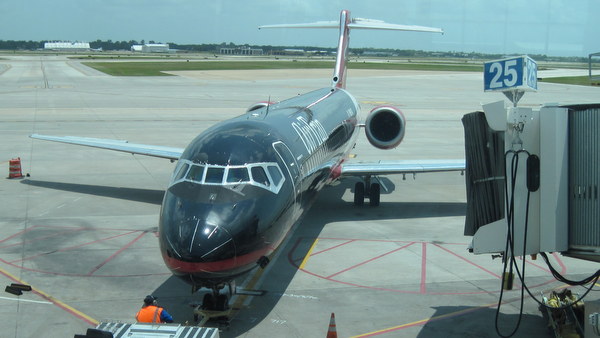
Airport security could look a whole lot different, if the airline industry has its way.
The airline industry wants to develop the so-called Checkpoint of the Future (CoF) “with the long term aim of enabling passengers to walk through a security checkpoint without stopping, removing items of clothing and liquids, or taking computers out of bags.” But, that would require making “fuller use of passenger information,” a proposition that could be controversial.
The revelation was included in remarks Tony Tyler, director general and CEO of the International Air Transport Association (IATA), made earlier this month at the World Passenger Symposium in Abu Dhabi. The IATA represents 240 airlines.
“This will require a mindset change. Today we are looking for prohibited objects with a one-size-fits-all process. We need to be wiser,” Tyler said, according to a transcript. “One of the fundamental premises of CoF is risk assessment. That will allow us to focus resources where the risk is greatest, which will make the system more secure. And we will reduce the hassle.
“To achieve this, we will need to make fuller use of passenger information. We are not talking about forcing the collection of more information — only using to better effect the information that is already mandated by governments,” Tyler added. “Of course, this could be supplemented with voluntary “known traveler” programs. And by doing so we can provide differentiated screening based on what we know about each passenger.”
Recognizing that “sharing information about passengers is a sensitive subject” but not a “show-stopper,” IATA points to its own Passenger Survey that indicates nearly three out of four air travelers don’t mind sharing personal information with government agencies if that results in quicker security screening.
“Governments already have broad experience with managing Advance Passenger Information and Passenger Name Record data securely for border control purposes,” Tyler said. “Furthermore our Passenger Survey shows that nearly three out of four air travelers would be willing to share their personal background information with governments in order to speed up security screening.”


